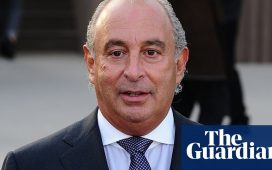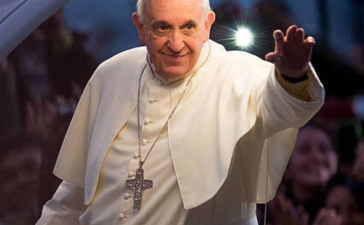Receive free Media updates
We’ll send you a myFT Daily Digest email rounding up the latest Media news every morning.
The boss of Canal+ has launched a scathing attack against the French football authorities after declaring the pay-TV channel would not take part in the forthcoming auction of broadcast rights.
Maxime Saada, chief executive of Vivendi-owned Canal+, told staff in an internal memo on Monday that the “sole objective” of the French governing body for major league football “was to sideline Canal+ in favour of Amazon”.
Saada criticised the Ligue de Football Professionnel (LFP) for “conditions and the total lack of transparency”, adding that entering the auction would be “pointless for the group”.
Canal+ declined to comment.
The LFP hit back against the criticism, saying the upcoming auction would “strictly respect” competition rules and be “totally transparent”. Referring to the charge it was favouring Amazon, the league said it “had no deal of any kind with any company whatsoever”.
The salvo is the latest in a long-running battle between the LFP and Canal+, which used to be the main broadcaster of top-flight football in France but has curbed its commitment to the sport in the past decade because of costs and competition from rivals.
Few in the French sports world expected Canal+ to bid this time around because it has diversified its sports content to include more rugby and international football, which has made French football less central to its strategy of winning over pay-TV subscribers.
In June, the head of the LFP told L’Equipe newspaper that Canal+ had no intention of bidding in the upcoming auction for rights from 2024 to 2029.
Candidates have until October 17 to apply. The bidders are expected to include online streaming services such as Amazon and DAZN. Qatar-backed pay-TV player beIN Sports is also reviewing whether to bid.
Relations between Canal+ and the LFP soured in 2020 when the league’s then main broadcast partner Mediapro collapsed in France, and the league resold the rights to Amazon for a cut-rate price. This enraged Canal+ because they had paid far more for its block of games, so they threatened a blackout, and filed lawsuits against the league.
In his memo to staff, Saada complained again about the episode, which he called a “mathematical aberration” by which Amazon got 80 per cent of the games for €250mn annually, while Canal+ paid €332mn for 20 per cent of the games. This “translates into an incompressible loss for our group, which is lossmaking in France,” he said.
Saada admitted that “subscribers in France are deeply attached to this competition” and he was “aware of the emotion this situation will create, both inside and outside the company”.
The broadcast rights auction is a crucial moment for the French football league because it still has not recovered from the twin financial hits of the Mediapro debacle and the Covid-19 pandemic. Both deprived French clubs of a chunk of revenue, tipping the league and some clubs into steep financial losses.
In a bid to turn things around, the LFP signed a deal with private equity firm CVC last year to sell them a 13 per cent stake in a newly created commercial arm of the league in exchange for a €1.5bn capital injection.
They have been trying new steps to boost the attractiveness of the competition that is marked by the dominance of super-club Paris Saint-Germain. One early step has been to cut the number of Ligue 1 teams from 20 to 18, and CVC has also promised to better value the LFP’s overseas TV rights.
The LFP had once hoped to garner about €1bn for the rights, but analysts expect proceeds to be nearer €800mn this time around.
Top-flight French football still fetches far less revenue for its TV broadcast rights than other European leagues. “The Bundesliga and Serie A take 50 per cent more, La Liga almost twice as much and the Premier League almost three times,” wrote Enders Analysis in a recent note.
“Ligue 1 wants to break with its recent history of failed tenders, declining revenues and soured relations with incumbent Canal+,” Enders added.
Additional reporting by Adrienne Klasa and Sam Agini








